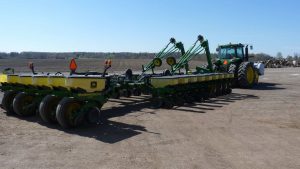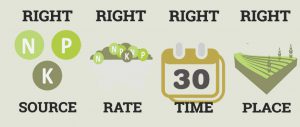Business side: Tax tips
CONVERSATIONS WITH BUSINESS EXPERTS

(J.M.) WHAT ARE SOME FREQUENTLY ASKED FARM BUSINESS TAX QUESTIONS OR CONCERNS THAT COME UP EACH YEAR?
(J.M.) We are seeing a lot more activity with succession and estate planning, an interesting trend that says a lot about our farm population demographics.
As for farm income tax, business structure is a significant focus for us. We want to ensure our clients’ business structure — sole proprietor, partnership, or corporation — is appropriate for their long-term plans. This includes access to their Lifetime Capital Gains Exemption (LCGE) or the beneficial “rollover” rules for farm property (where certain kinds of farm property can be transferred to the next generation without triggering a big income tax liability).
Another concerning issue arising from farm clients is the lack of estate planning and wills. Some don’t have an estate plan in place at all, including some of the basic stuff such as not having wills, Power of Attorney, etc. We are also seeing an issue with wills being drafted that would not allow for the “rollover” of farm property.
ARE THERE ANY NEW REGULATIONS OR TAX CHANGES FARMERS SHOULD BE AWARE OF?
It might be easier to ask what hasn’t changed — there have been a lot of tax changes over the past few years. Here’s a quick summary of some of the important changes that have impacted farm business tax planning over the past decade:
- For taxation years ending after March 20, 2013, there were changes to the “restricted farm loss” rules, which make it difficult for anyone but a “full-time farmer” to claim full personal or corporate losses from their farming business against other sources of income.
- Intercompany dividends (e.g. dividends paid from an operating company to a holding company) paid after April 20, 2015 may trigger income tax unless strict conditions are met.
- For taxation years beginning after March 21, 2016, a farming corporation’s income from providing goods or services to other related entities (e.g. doing custom work for a sibling’s corporation) may trigger higher corporate tax rates.
- The “income splitting” restrictions were introduced effective January 1, 2018, making it more difficult (and sometimes impossible) to pay dividends and other kinds of income to family members without triggering the highest rate of personal tax.
- For taxation years beginning after 2018, the “passive income” rules can restrict a farming corporation’s access to lower corporate tax rates if they earn a certain amount of “non-active” or passive income (e.g. rent or interest).
Except for the first point, all of the changes have been targeted at incorporated businesses.
WHAT ARE YOUR TOP THREE TIPS FOR GRAIN FARMERS WHEN IT COMES TO BUSINESS TAX PLANNING?
- Talk to your tax and accounting advisor whenever you are considering a major business decision. You never know when a business decision or change will have a tax or accounting angle that you haven’t thought about. Being proactive can save you a lot of tax dollars — or tax problems — down the road.
- Meet with your tax and accounting advisor well before the end of your tax year. This gives us an opportunity to look at your current situation and consider planning opportunities. Waiting until after the year has passed limits what we can do from a tax and business planning perspective.
- Keep a clean set of books. If you don’t have time to do your bookkeeping yourself, finding a bookkeeper is well worth the cost. Starting out with messy or complicated accounting records makes it harder for us to properly advise our clients and ultimately results in higher professional fees. •





















